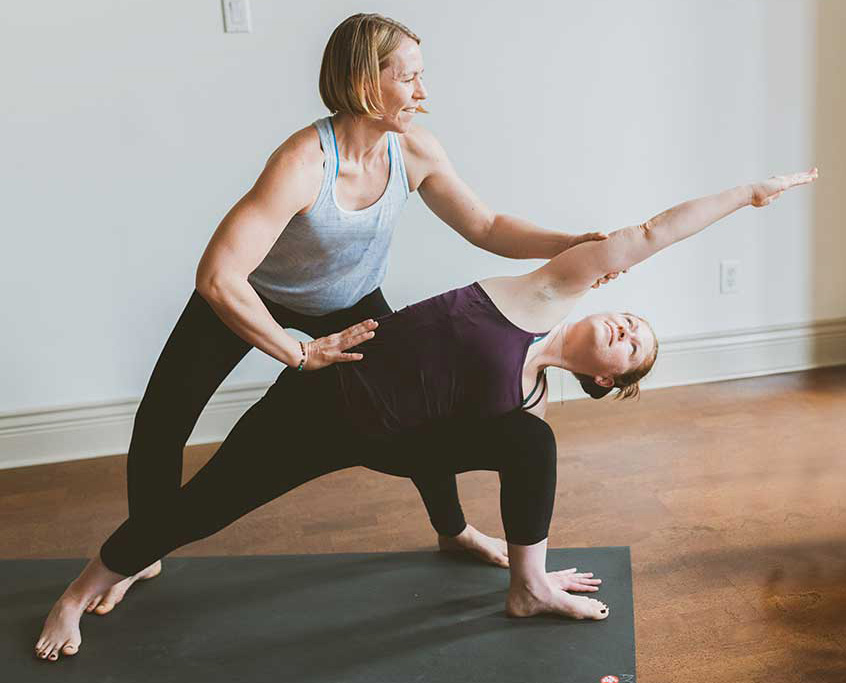What is Somatic Yoga
Somatic yoga is a holistic approach to yoga that focuses on the integration of body, mind, and spirit through conscious movement, breathwork, and mindfulness practices. Unlike traditional yoga, which often emphasizes achieving specific poses or alignment, somatic yoga places greater emphasis on internal awareness and sensation.
In somatic yoga, practitioners are encouraged to explore movement patterns, release tension, and improve flexibility and strength by tuning into the sensations within their own bodies. This approach involves slow, mindful movements that help to re-educate the nervous system and promote greater body awareness.
Understanding Somatic Movement
Somatic movement focuses on increasing awareness of internal bodily sensations and movements. Unlike traditional yoga, which often emphasizes external alignment and posture, somatic movement prioritizes internal sensing and feeling. The principles of somatic movement involve slow, mindful movements aimed at releasing chronic muscle tension and restoring natural alignment. Read about How to Lose Weight Without Exercise
The Mind-Body Connection
Central to Somatic Yoga is the recognition of the intimate connection between the mind and body. By cultivating awareness of bodily sensations and movements, practitioners can develop a deeper understanding of their physical and emotional states. Techniques such as body scanning and breath awareness are commonly used to enhance the mind-body connection in Somatic Yoga practice.

Practicing Somatic Yoga
Somatic Yoga incorporates gentle, slow-paced movements designed to release tension and improve mobility. Unlike traditional yoga poses, which may involve holding static postures, somatic yoga poses focus on fluid, exploratory movements that encourage relaxation and awareness. Breathwork plays a vital role in Somatic Yoga, with emphasis placed on smooth, coordinated breathing to support the body’s natural rhythms. Discover about How Many Jumps to Burn 500 Calories
Healing Through Somatic Yoga
One of the primary benefits of Somatic Yoga is its therapeutic potential for addressing chronic pain and tension. By releasing muscular holding patterns and restoring proper alignment, Somatic Yoga can alleviate discomfort associated with conditions such as back pain, neck tension, and joint stiffness. Regular practice of Somatic Yoga can also improve flexibility, mobility, and overall physical function.
Somatic Yoga for Stress Relief
In addition to its physical benefits, Somatic Yoga offers powerful tools for stress management and relaxation. By fostering awareness of bodily sensations and promoting relaxation responses, Somatic Yoga can help reduce stress levels and promote a sense of calm and well-being. Mindfulness techniques, such as body scanning and progressive muscle relaxation, are often integrated into Somatic Yoga practice to enhance stress relief. Learn about How Long Does Pre Workout Last
Somatic Yoga for Mental Well-being
Somatic Yoga not only benefits the body but also supports mental and emotional well-being. Through its focus on mindful movement and breath awareness, Somatic Yoga can enhance mental clarity, focus, and concentration. Regular practice of Somatic Yoga can also promote emotional balance, resilience, and a greater sense of inner peace.
Somatic Yoga for Daily Life
Somatic Yoga is not just a practice confined to the yoga mat; it is a way of life that can be integrated into daily routines. Simple somatic movement exercises can be incorporated into activities such as walking, sitting, and standing to promote awareness and relaxation throughout the day. Practitioners can also use Somatic Yoga principles to improve posture, relieve stress, and enhance overall well-being in various settings.
Somatic Yoga for Different Populations
Somatic Yoga is adaptable to people of all ages and fitness levels, making it suitable for a wide range of populations. Athletes can benefit from Somatic Yoga’s focus on releasing tension and improving body awareness, enhancing performance and preventing injury. Seniors can also find relief from age-related stiffness and discomfort through gentle somatic movement practices tailored to their needs.
Combining Somatic Yoga with Other Practices
Somatic Yoga can be integrated with other wellness practices to enhance its benefits. Combining Somatic Yoga with meditation can deepen relaxation and promote inner peace. Similarly, blending Somatic Yoga with traditional yoga practices can provide a comprehensive approach to physical and mental well-being, addressing both muscular tension and spiritual growth.

The Future of Somatic Yoga
As interest in holistic wellness continues to grow, Somatic Yoga is poised to play an increasingly significant role in the wellness industry. With its emphasis on mindful movement, breath awareness, and the mind-body connection, Somatic Yoga offers a unique approach to health and well-being that complements existing modalities. As research on the benefits of Somatic Yoga expands, its potential to transform lives and promote holistic wellness will become increasingly recognized and embraced.
Conclusion
Somatic Yoga offers a transformative approach to movement and wellness, emphasizing the connection between the mind and body. By integrating principles of somatic movement with traditional yoga practices, Somatic Yoga promotes physical, mental, and emotional well-being. Through its gentle, mindful approach to movement and breathwork, Somatic Yoga provides powerful tools for stress relief, pain management, and overall health enhancement. Whether you’re seeking relief from chronic pain, stress reduction, or simply a greater sense of well-being, Somatic Yoga offers a holistic path to healing and self-discovery.
FAQs
- Is Somatic Yoga suitable for beginners?
- Yes, Somatic Yoga can be adapted to accommodate practitioners of all levels, including beginners. Instructors can modify poses and movements to suit individual needs and abilities.
- How often should I practice Somatic Yoga?
- The frequency of Somatic Yoga practice depends on individual goals and schedules. Practicing a few times a week can yield noticeable benefits, but even brief daily sessions can contribute to overall well-being.
- Can Somatic Yoga help with anxiety and depression?
- Somatic Yoga’s emphasis on mindful movement and breath awareness can be beneficial for managing symptoms of anxiety and depression. However, it’s essential to consult with a healthcare professional for personalized treatment recommendations.
- Are there any specific props or equipment needed for Somatic Yoga?
- Somatic Yoga typically requires minimal props, such as a yoga mat and comfortable clothing. Some practitioners may find props like blankets or blocks helpful for support and alignment.
- How does Somatic Yoga differ from other forms of yoga?
- While traditional yoga often focuses on external alignment and posture, Somatic Yoga prioritizes internal sensing and feeling. Somatic Yoga’s emphasis on mind-body connection distinguishes it from other yoga styles.
